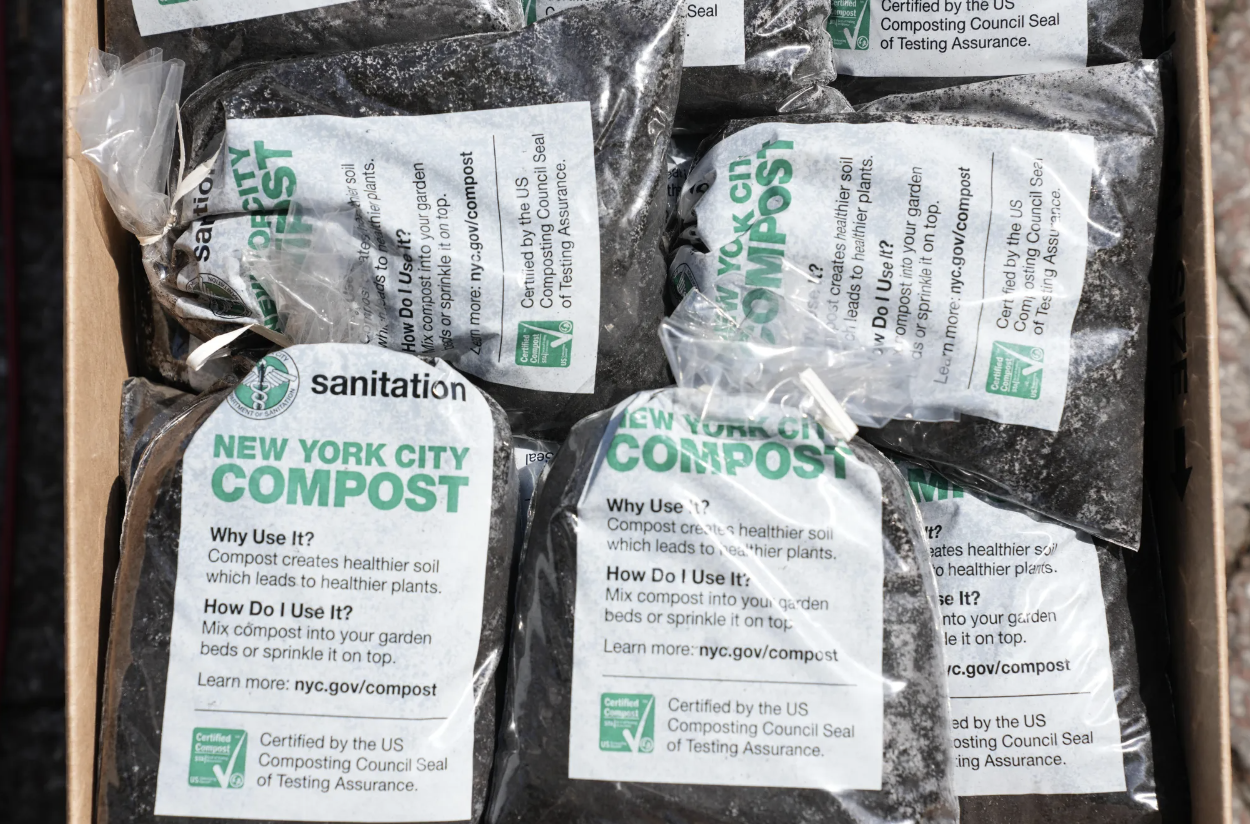Bring back Queens composting program, pol tells DSNY
/Queens’ boroughwide composting program is on pause. At least one Queens lawmaker wants the pause to be lifted before its scheduled spring restart date. File photo by Michael Appleton/Mayoral Photography Office
By Jacob Kaye
A Queens lawmaker is calling on the city to bring back its widely successful composting program in the World’s Borough after the pilot program was put on pause for the winter last month.
Queens City Councilmember Tiffany Cabán wrote an open letter to the Sanitation Department this week, expressing concern over the agency’s decision to pause the city’s first-ever boroughwide composting program until the spring.
“From diverting waste from our landfills, limiting excessive food waste, reducing greenhouse gasses and curbing the effects of climate change, the benefits of the Queens composting initiative cannot be overstated,” Cabán said in her letter.
“I share the disappointment and disagreement of my constituents on the decision [to pause the program,” she added.
The program was first rolled out in Queens at the start of October. The pilot program built on previous efforts undertaken by the city to get residents to separately dispose of food waste, yard waste and other organic material, but was far larger and more inclusive than any other iteration of a city compost program.
In the first three months of the program, nearly 13 million tons of Queens waste was diverted from landfills.
The program – which allows for residents to opt-in but also has a large eliminate of automatic participation – has also seen a number of districts in Queens outperform districts in the city that have long had optional composting programs.
Eight of Queens 14 districts outperformed the best performing opt-in district in Brooklyn, which has had the program for nearly 10 years.
The neighborhoods of Jamaica, Hollis, St. Albans and Springfield Gardens, which had never had a composting program before, diverted more waste than the entire seven-district opt-in program combined, according to the Sanitation Department.
Despite the success, the program was put on pause for the winter season. Service will resume the week of March 27. Queens residents can still dispose of their organic waste at food scrap drop-off sites, a bulk of which are in Manhattan and Brooklyn. The highest concentration of drop-off sites in Queens are in Astoria, which Cabán represents.
The Western Queens lawmaker argued in her letter that by pausing the program, the city runs the risk of breaking a habit they’ve long attempted to create. She also said the pause cuts off the program just as it was beginning to show signs of growth.
“Public participation in the Queens pilot grew to 57 percent from October to December of last year, and putting an abrupt pause on the initiative does a disservice to the community’s efforts to build a more sustainable, safer and cleaner neighborhood,” Cabán wrote. “Most importantly, DSNY should be increasing accessibility and engaging participation, and the decision to pause the program does the exact opposite.”
“It is with respect and admiration for DSNY’s efforts as well as the work and intentionality of District 22 residents that I request the program continue uninterrupted throughout the winter months,” she added.
However, the Department of Sanitation gave no indication that the pause would be lifted anytime soon.
“Councilmember Cabán and her fellow elected officials from Queens have been fantastic partners in the Queens composting program, and we will definitely take their feedback into account for next year,” a DSNY spokesperson told the Eagle on Wednesday.
Queens’ composting program was the first-of-its-kind in New York City.
The program, for many residents, did not require Queens residents to sign up.
DSNY delivered compost bins to residential buildings with 10 or more units before the launch of the program and residents of single family homes who wanted a compost bin had the opportunity to order one for free prior to the start of the program.
All Queens residents are eligible for the program.




